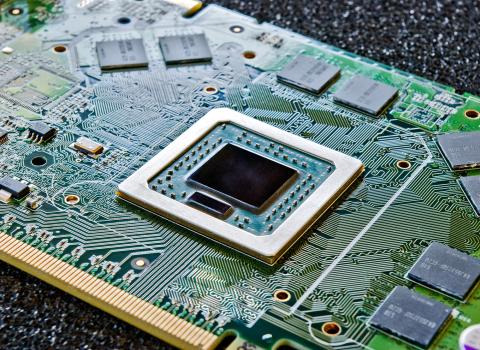Goal-line technology developed by German startup Goal Control, was put to use for the first time in the World Cup’s history on Sunday when it adjudicated on an inconclusive French goal against Honduras.
In a contentious moment in the match it was uncertain whether the football had crossed the goal-line and with its milimetre precision the technology was able to rule that it had. France eventually won the game 3-0.
The system use 14 cameras to remove the unavoidable guesswork sometimes involved in football due to its pace.The cameras send digital pictures to a data room, sitting in the top of the stadium, manned by at least two people.There are seven cameras trained on each goal, taking 500 pictures per second and claiming an accuracy of within five milimetres. When the ball crosses the goal-line, the referee receives a “GOAL” message on his or her watch.
The German firm has around 30 – 35 technicians on the ground in Brazil and has invested somewhere between €200,000 and €300,000 in each stadium. The running costs involved for each football match cannot be defined exactly, said Goal Control’s spokesman, Rolf Dittrich, but are thought to be around €3,000.
Pressure to innovate
Using technology to provide clarity and aid in officiating is par for the course in tennis, cricket and rugby but the world of football is a late adopter. Bowing to pressure to innovate, World Cup organizer, the International Federation of Association Football (Fifa), this year tendered for the use of goal line technology for the first time.
Goal Control was chosen from 18 bids. A neutral company performed months of testing, finding the system accurate. The technology will remain in Brazil, the host of the World Cup, where it will operate full time in the Brazilian professional domestic league.
A number of other domestic leagues, including the English league and Major League Soccer in the US are exploring the possibility of using the technology.
Once the World Cup finishes, Goal Control will dedicate its time to developing a further application to rid the game of its other main contentious flash point: the incorrect judging of football’s complex offside rule.
Born of frustration
Dismayed by a wrong decision in a game in Germany’s second division league in 2009, where the referee did not award a goal when he should have, Dirk Broichhausen, one of the founders of the company, started to get interested in bringing innovation to football.
The day after the match he went to technicians in his then company Pixargus, which used cameras and software to monitor production lines making certain car parts and medical devices and asked if it was possible to devise a similar system for football. “After thinking about it they answered, it will be hard, but it will be possible,” said Dittrich.
After seeing an infamous “ghost goal” in the 2010 World Cup, where England were wrongly denied a goal, Broichhausen became further convinced of the need for the technology, and set up a separate company, Goal Control, in November 2012.
Resistance remains in some influential quarters of football. Uefa president, Michael Platini, has in the past poured cold water on the technology being considered for European football contest, the Champion’s league.
Installing the system in 280 stadiums in Europe, "Would cost around €54 million over five years, so it's quite expensive for the sort of mistake which happens once every 40 years," he said.
A tale of Germany versus England
The scene is dominated by four companies, three are from Germany (Goal Control, GoalRef and Cairos) and one from the UK (Hawk-Eye).
Hawk-Eye has the strongest track record in sport, with its technology in use in cricket and to provide instant replays to judge disputed line calls in tennis.
GoalRef and Cairos use a different technique from Hawk-Eye and Goal Control with magnetic fields installed inside the goal instead of cameras, and microchips in the football.
It’s really little wonder that UK and Germany lead in goal line technology: it’s a story that both countries have been at the heart of since 1966.
In the 2010 World Cup, England's Frank Lampard was denied a goal against Germany when his shot hit the bar and officials failed to spot it had bounced down just behind the line. That would have tied the match at 2-2 but Germany went on to win 4-1.
This evoked memories of a famous incident in 1966 when England beat West Germany 4-2 in the final at Wembley, helped by a similar disputed goal that was given to the English on this occasion.





 A unique international forum for public research organisations and companies to connect their external engagement with strategic interests around their R&D system.
A unique international forum for public research organisations and companies to connect their external engagement with strategic interests around their R&D system.